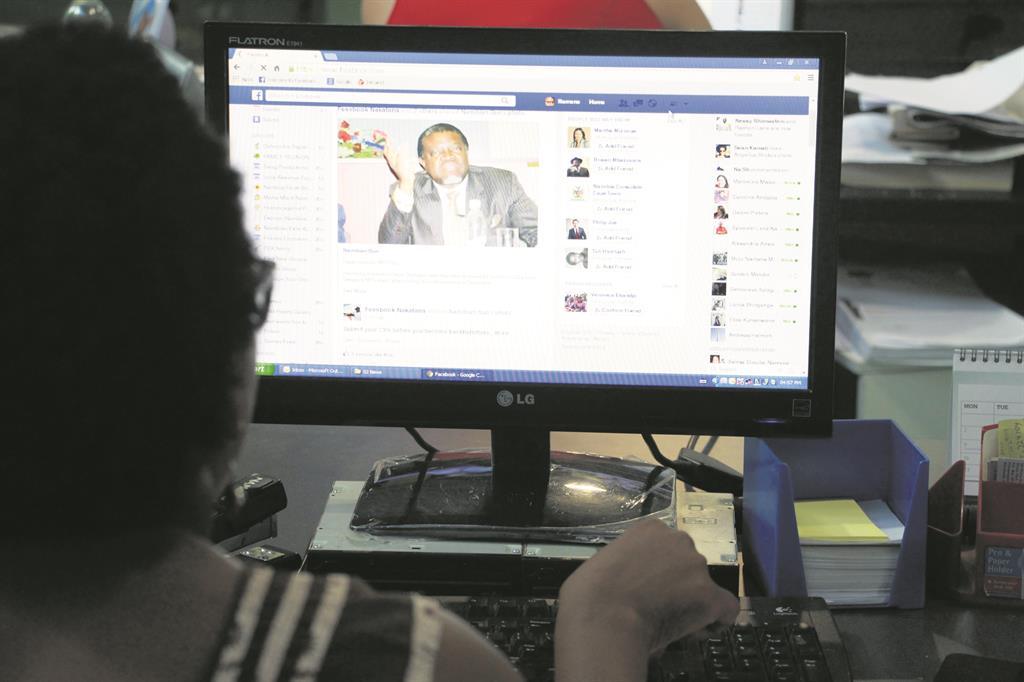Online violence considered an emerging human rights challenge
ESTER KAMATI
WINDHOEK
During a Southern Africa regional roundtable on Wednesday, Namibia’s information, communication and technology deputy minister Emma Theofelus said online violence is increasing and should be considered an emerging human rights challenge.
“Online violence is real violence,” she said as she challenged African countries to support initiatives aimed at the transformation of gender-based discrimination and harmful behaviours.
Theofelus said a lot still needs to be done in tackling the gender-based violence (GBV) crisis.
“In many cases, policy and implementation remain distant cousins,” she said, acknowledging that some countries are making strides through legal reforms and applying such reforms in practicality while others still have a long way to go in making an impact for men and women on the ground.
She further stated that the problem requires attention on both ends.
“Let’s ensure a comprehensive approach that does not only target the survivors but also the perpetrators’ behaviours.”
Online GBV, she said, is an abuse of one person’s rights, which causes an infringement on those of others.
“While freedom of expression is essential, we should note that as stated by the United Nations Declaration of Human Rights, the expression of one freedom cannot come at the expense of someone else’s freedom.”
Theofelus advocated for a huma-rights-based approach in the implementation of policies.
“In setting up a legal framework to address the current state of the world, there is a need for a policy-making process that takes strides in ensuring implementations and evaluations of policies that are people serving and entrenching a human-rights-based approach in the formulations.”
Cyberbullies
The deputy minister further attributed “the borderless nature of the internet” to the increased violence against women and girls.
“We challenged gendered insults because they only perpetuate violence against women. We challenged the disrespect against women and their relegation into objects because disrespect and the objectification of women enables violence.”
“Online trolls against women; cyberbullying and gendered insults are not against that one particular woman, but rather it is the abuser telling all of us what they think of women in general and their place or even their value in society.”
Theofelus emphasised the importance of mapping evidence at a regional level in dealing with the new phenomenon of online gender-based violence.
“I also urge further studies be conducted to expand the body of knowledge in this under researched area, especially within our region.”
Stakeholders were encouraged to take action beyond the discussion in alleviating the issue.
“Develop targeted programs dealing with behaviours that fuels online gender-based violence. Programmes that address harmful cultural and community practices.”
[email protected]
WINDHOEK
During a Southern Africa regional roundtable on Wednesday, Namibia’s information, communication and technology deputy minister Emma Theofelus said online violence is increasing and should be considered an emerging human rights challenge.
“Online violence is real violence,” she said as she challenged African countries to support initiatives aimed at the transformation of gender-based discrimination and harmful behaviours.
Theofelus said a lot still needs to be done in tackling the gender-based violence (GBV) crisis.
“In many cases, policy and implementation remain distant cousins,” she said, acknowledging that some countries are making strides through legal reforms and applying such reforms in practicality while others still have a long way to go in making an impact for men and women on the ground.
She further stated that the problem requires attention on both ends.
“Let’s ensure a comprehensive approach that does not only target the survivors but also the perpetrators’ behaviours.”
Online GBV, she said, is an abuse of one person’s rights, which causes an infringement on those of others.
“While freedom of expression is essential, we should note that as stated by the United Nations Declaration of Human Rights, the expression of one freedom cannot come at the expense of someone else’s freedom.”
Theofelus advocated for a huma-rights-based approach in the implementation of policies.
“In setting up a legal framework to address the current state of the world, there is a need for a policy-making process that takes strides in ensuring implementations and evaluations of policies that are people serving and entrenching a human-rights-based approach in the formulations.”
Cyberbullies
The deputy minister further attributed “the borderless nature of the internet” to the increased violence against women and girls.
“We challenged gendered insults because they only perpetuate violence against women. We challenged the disrespect against women and their relegation into objects because disrespect and the objectification of women enables violence.”
“Online trolls against women; cyberbullying and gendered insults are not against that one particular woman, but rather it is the abuser telling all of us what they think of women in general and their place or even their value in society.”
Theofelus emphasised the importance of mapping evidence at a regional level in dealing with the new phenomenon of online gender-based violence.
“I also urge further studies be conducted to expand the body of knowledge in this under researched area, especially within our region.”
Stakeholders were encouraged to take action beyond the discussion in alleviating the issue.
“Develop targeted programs dealing with behaviours that fuels online gender-based violence. Programmes that address harmful cultural and community practices.”
[email protected]




Comments
Namibian Sun
No comments have been left on this article